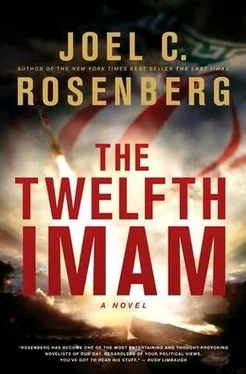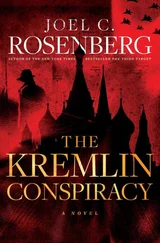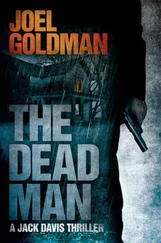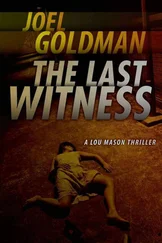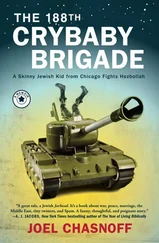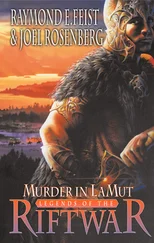“He was there to attend a funeral for Mr. Rashidi’s brother in-law.”
“He could have been killed himself.”
“Actually, several members of the funeral party were killed when their hotel partially collapsed.”
“But Mr. Rashidi is okay?”
“Yes, praise Allah, he’s fine,” she said. “But everyone is devastated. It’s just too much to take in all at once.”
Mina got in the backseat, motioning for David to sit in the front with the driver, then explained that they were going to meet a young man named Javad Nouri, who would be given fifteen of the phones. When David asked who Nouri was, however, and where the remaining five phones would go, Mina became noticeably uncomfortable.
“I really can’t say,” she apologized.
Forty minutes later, they pulled up to a coffee shop.
“Park here on the side street,” David directed the driver. “I’ll bring him out to get the phones.”
“Shouldn’t I go with you?” Mina asked.
“Why? Do you know what this Nouri guy looks like?” he asked.
“Well, no, but-”
David cut her off. “Just wait here. I’ll only be a few minutes.”
He got out of the car empty-handed, entered the café, and went to the back by the restrooms. There he found a young man in his midtwenties, smoking a cigarette and pacing nervously. That was Nouri, David thought, but he decided not to rush into things. He took a seat in a booth, his back to the wall. Behind the counter a television was on, showing coverage of the crisis in Hamadan.
“Rescue workers continue to struggle to clear rubble and bodies from the streets of Hamadan, where a government official said the death toll from this 8.7-magnitude earthquake may exceed ten thousand, with more than thirty-five thousand wounded,” an Iranian newscaster reported from the epicenter of the flattened city. “Thousands of injured people are still waiting for care outside badly damaged hospitals, while an unknown number remain trapped inside collapsed buildings. Basic services like water and electricity are out, and the mayor says his government needs help clearing streets so rescuers can reach some of the hardest-hit areas.”
“Help us!” one woman shrieked, holding her dead baby. “We have no water! We have no food! Help us! Someone, please help us!”
“Rescuers are digging though the rubble of leveled buildings with their hands, looking for survivors or bodies,” the reporter continued. “But I must tell you, I have never seen devastation like this. Whole blocks of collapsed buildings. Bodies in the streets. And officials say they fully expect the death toll to soar throughout the coming days. International expressions of sympathy are pouring in.”
The Iranian newscast cut to a clip of the White House press secretary.
“President Jackson and the First Family have been deeply moved by the images of suffering coming out of the Iranian city of Hamadan, as have many Americans and people of goodwill,” the spokeswoman said. “The Jackson administration would like to extend its hand of friendship to the Iranian people. We currently have two U.S. planes filled with food, winter clothing, blankets, and other aid on the tarmac in Incirlik, Turkey. With the permission of the Iranian government, we can have those aircraft on the ground in Hamadan in a matter of hours.”
The young man with the cigarette cursed the U.S. offer. “Our people are martyrs,” he said to no one in particular. “They are martyrs for the cause. Allah will have mercy on their souls. We don’t need the Great Satan’s help. Curse Jackson. Curse them all.”
David recoiled, but he wasn’t about to defend the American government in a coffee shop in downtown Tehran. “Well, I don’t know about martyrs,” he said to the young man, “but you’re right about the Great Satan. Let the Americans all burn in hell.”
“But they are martyrs,” the young man said.
“Not everyone who dies tragically is a martyr,” David said.
“But these are. They died preparing the way for the Lord of the Age, peace be upon him.”
David stood and approached the young man. The Kolbeh Café was popular and beginning to fill up with the breakfast crowd.
“Are you Javad Nouri?”
“Are you Reza Tabrizi?”
“I am.”
“Do you have the gifts our friend asked for?”
“I do.”
“Where are they?”
“In the car, in the alley.”
“Lead the way,” Nouri said.
David complied, leading the man out to the car. He instructed the driver to pop the trunk and stay in the car.
“Are they clean?” Nouri asked.
David assured him that they were bug-free.
“Good. That will be all,” Nouri said.
A moment later a car pulled up behind them. Two men got out, took the boxes of satphones, put them in their own trunk, and departed, Javad Nouri with them. David memorized the license plate. He got back into his car, turned to Mina, and asked, “Now what?”
Mina explained that Esfahani had left a large envelope of cash for the phones in his safe and directed their driver to take them back to the Iran Telecom offices.
Once there, they headed into Esfahani’s office, and David waited for Mina to open the safe.
“Here you go,” she said, finally handing him a zippered cloth bag with a manila envelope stuffed inside. “You can count it if you’d like.”
“That’s okay,” he said, smiling. “I trust you.”
Mina adjusted her headscarf and looked away.
The phones were ringing off the hook, not just in Esfahani’s office but throughout the technical support department. Everyone was abuzz with the earthquake in Hamadan and with the Herculean efforts the company was expending to get wireless service for the northwest quadrant of the country back up and running.
Mina’s cell phone rang.
“Yes?” she said. “Yes, but… Yes, I will… Do you want to speak to him? He’s right… Okay, I will… Bye.”
“The boss?” David asked.
Mina nodded. “He wants you to come to him in Hamadan right away and bring the other five phones to him in person.”
“Sure, whatever he wants.”
“I’ll book you a flight and a rental car,” Mina said, heading back to her desk. “I don’t know if there are any hotels operating right now, but I’ll figure out something.”
David suddenly found himself alone in Esfahani’s office. He quickly glanced at the safe, but Mina had already closed and locked it. He checked the hallway-clear. He looked at Mina, already on the phone with the travel department. Then he noticed Esfahani’s desktop computer was still on.
David recalled the transcript he’d read from the intercepted call made by his driver the day of David and Eva’s disastrous first meeting with Esfahani. The driver had referred to Esfahani as the “nephew of the boss.” Wondering just who it was Esfahani was related to, David quickly pulled up Esfahani’s phone directory and scrolled through it. He began by searching for the name Ibrahim Asgari, commander of VEVAK, the secret police, but came up empty. Next he looked up Supreme Leader Hosseini. It was a long shot, he figured, but worth a try. Again, he came up empty. He tried President Ahmed Darazi. This, too, was a dry hole. Defense Minister Ali Faridzadeh was his next search. Yet again, the search came up blank.
Still, Esfahani had 837 contacts. There had to be someone useful in there, David figured. He glanced at Mina again. She was still on the phone and typing on her computer. Knowing he had only a few moments before she came back in, he pulled a memory stick from his pocket, inserted it into the USB port of Esfahani’s hard drive, and downloaded the entire directory, as well as Esfahani’s calendar.
“Okay,” Mina called out, getting up from her seat and coming back into Esfahani’s office, “I got you the last seat on the next flight to Hamadan.”
Читать дальше
